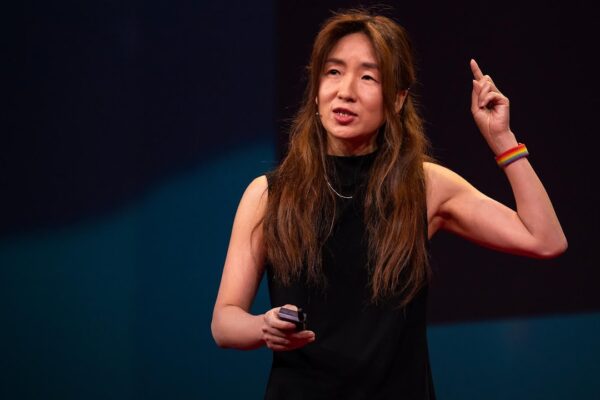In a move aimed at expanding the functionality of its popular messaging app, Meta is quietly rolling out a new feature called "Communities" on Messenger. The feature, which was first introduced on WhatsApp in 2022, allows organizations, schools, and other private groups to communicate in a more organized and structured way.
What are Communities?
Meta’s Communities feature enables people to connect with others without needing an associated Facebook Group to do so. This means that users can create dedicated spaces for real-time communication on Messenger without being connected to a Facebook Group. The launch of this feature indicates that Meta is looking to differentiate its messaging app from other services like iMessage, and add a broader social networking aspect to the platform.
How Does it Work?
Communities consolidate multiple group chats into one place, making it easier for administrators to manage conversations. Each Community features a dedicated "Home" space where admins can share updates and announcements. Up to 5,000 people can join a community through shareable invites, as per Meta’s guidelines.
Use Cases
The feature has various use cases, including:
- Organizations: Create a Community for team members to communicate and collaborate.
- Schools: Establish a Community for parents, teachers, and students to discuss school-related topics.
- Neighborhoods: Connect with residents and create dedicated group chats for local events, security alerts, and more.
- Interest-based communities: Create spaces for people with similar interests to connect and discuss their passions.
Key Differentiators
While Communities on WhatsApp require users to have someone’s phone number to invite them to a Community, Messenger Communities are connected to Facebook’s social graph. This allows users to grow their communities by inviting Facebook friends and friends of friends.
On its help page, Meta notes that Communities on Messenger are designed for more public conversations compared to Facebook groups. For instance, all current and future members of a Community can see chat content.
Availability
The new feature is rolling out to all users globally, making it easier for people to connect with others through Messenger.
Meta’s Strategy
By introducing Communities on Messenger, Meta aims to expand its messaging app’s functionality and differentiate it from other services. This move also suggests that the company wants to add a broader social networking aspect to the platform by helping people find and connect with their community directly within Messenger.
Related Developments
Meta’s focus on expanding its messaging app’s features is part of its larger strategy to enhance user engagement and retention. The company has been investing heavily in its messaging platforms, including WhatsApp and Instagram Direct.
In a related development, Meta recently acquired the AI-powered chatbot company, Kustomer, to improve its customer service capabilities.
Conclusion
Meta’s introduction of Communities on Messenger marks an exciting development for the company’s messaging app. By providing users with more features to connect with others, Meta aims to make Messenger a go-to platform for both personal and professional communication.
As the tech landscape continues to evolve, it will be interesting to see how Meta’s new feature influences user behavior and shapes the future of social networking.
Future Outlook
The introduction of Communities on Messenger is likely to have far-reaching implications for user engagement and retention. As more people use this feature, we can expect to see increased adoption rates and a boost in user satisfaction.
In the coming months, Meta will likely continue to refine its features based on user feedback and data analysis. This could lead to further innovations in the messaging space, potentially changing the way people connect with others online.
Timeline of Key Events
- 2022: Meta introduces Communities on WhatsApp.
- 2023: Meta rolls out Communities on Messenger globally.
- Ongoing: Meta continues to refine its features based on user feedback and data analysis.
Meta’s Commitment to Innovation
By introducing Communities on Messenger, Meta demonstrates its commitment to innovation and user-centric design. As the company continues to push the boundaries of what is possible in social networking, we can expect to see more exciting developments in the future.
In conclusion, Meta’s new "Communities" feature on Messenger marks a significant milestone in the company’s efforts to enhance user engagement and retention. By providing users with more features to connect with others, Meta aims to make its messaging app a go-to platform for both personal and professional communication.
Meta’s Vision for Social Networking
As social media continues to evolve, Meta’s vision for connecting people through its platforms is clear: provide users with seamless experiences that allow them to build meaningful relationships with others. By introducing Communities on Messenger, Meta takes another step towards achieving this goal.
Future Developments in Messaging Apps
The introduction of Communities on Messenger is likely to influence the development of messaging apps in the future. As more companies invest in similar features, we can expect to see increased competition and innovation in the space.
In the coming years, we will see significant advancements in social networking, driven by user demand for more interactive and engaging experiences. As Meta continues to shape the future of social media, its commitment to innovation and user-centric design will remain a driving force behind this progress.
Conclusion
Meta’s Communities feature on Messenger is an exciting development that reflects the company’s focus on enhancing user engagement and retention. By providing users with more features to connect with others, Meta aims to make its messaging app a go-to platform for both personal and professional communication.
As we move forward into a new era of social networking, one thing is clear: Meta will continue to play a leading role in shaping the future of online interactions.







